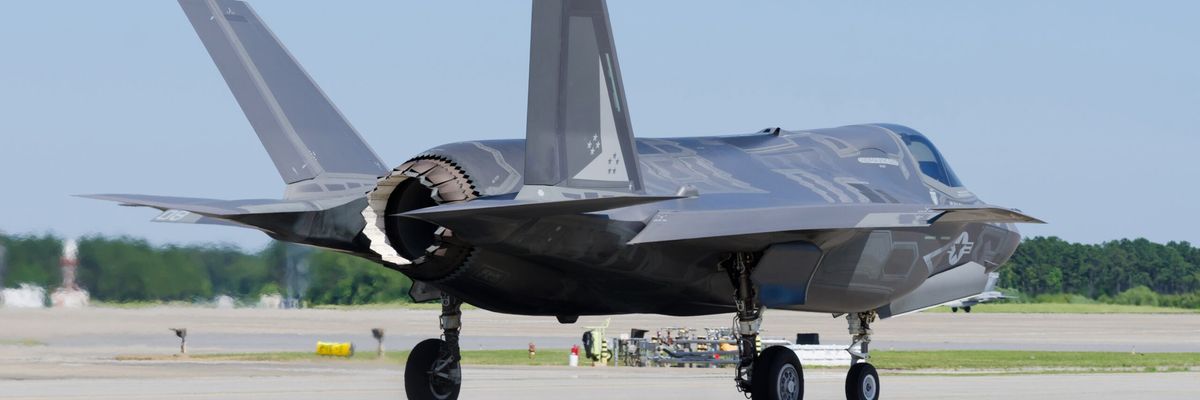A transpartisan set of advocacy groups, think tanks, and government watchdogs called on Congress to reconsider a $6 billion plan to make new engines for the F-35 fighter jet, arguing that the proposal risks becoming the latest wasteful aspect of the controversial program.
“The F-35 program as a whole has already cost American taxpayers an exorbitant amount,” the organizations wrote in an open letter. “It is vital that time and care be taken before making decisions that could add considerably to the bill.”
The letter comes in response to the House version of the 2023 defense budget authorization bill, which will be discussed on the floor this week. As it stands, the draft legislation sets aside $503 million for the new “Adaptive Engine Transition Program,” which would replace engines for most F-35s with a design that had previously been rejected. Advocates argue that this move would add cost without addressing their core complaints about the program.
“If your house is burning down, you don't pour gas on the fire,” said Andrew Lautz of the National Taxpayers Union, one of the letter’s backers. Other signatories include the Taxpayers Protection Alliance, Progressive Democrats of America, the Project on Government Oversight, and the Quincy Institute, which publishes Responsible Statecraft.
Few Pentagon programs are as hotly debated — or as expensive — as the F-35. As the letter notes, the lifetime cost of the planes is projected to reach $1.7 trillion, or “roughly $5,000 for every man, woman, and child in the nation.”
Many of the program's problems relate to its engines, which have been plagued by quality issues that have left many of the planes grounded. Given these troubles, it should come as no surprise that Congress is keen to get the F-35’s engines back on track. But watchdogs say the AETP is not the best way to fix this problem.
As the letter notes, the new engines would only be compatible with the Air Force version of the F-35. This would leave the Navy and the Marines, which have ordered almost 30 percent of the program’s planes, out to dry. It could also lead to problems on the battlefield, according to Dan Savickas of the Taxpayers Protection Alliance.
“There wouldn't be that uniformity so they could exchange parts or repair quickly in the battlefield, if needed, which would lead to more waste and more taxpayer dollars having to go out the door,” said Savickas, whose organization led the effort to publish the letter.
Advocates also worry that the proposal is buried in the defense spending authorization act, a “must-pass” bill that is often more than 1000 pages long.
“That's a lot of the problem with Congress generally, that they put very controversial, hardly settled issues into bigger packages so that they must get passed without oversight,” Savickas said. “Given the performance of the F-35 program, they need to take a lot more time to look at this and whether or not this is an efficient use of taxpayer dollars.”
Some signatories have gone further in their criticism of the F-35, calling on Congress to cancel the program entirely. But given that many see the F-35 as “too big to fail,” the letter’s backers contend that forcing a full review of engine options is the best way to avoid “any further expenditure that creates unnecessary costs for the American people.”
“Given record levels of spending and inflation, this is the time our nation can least afford it,” the letter says.
















